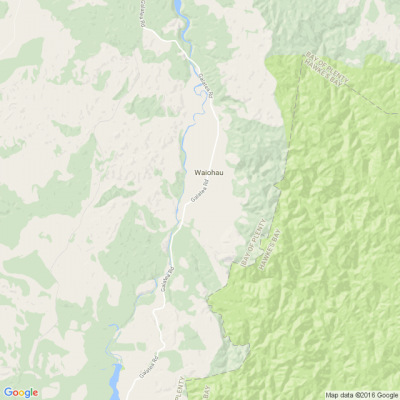
Know what’s happening
Access the private noticeboard for verified neighbours near you. Keep informed about any suspicious activity, send urgent updates to your neighbours when required and discuss emergency planning.
Get to know your neighbours
Browse the directory and start getting to know your neighbours. Don’t want to post to the whole neighbourhood? Send a private message.
Buy, sell and give away
Want to declutter your garage? Buy some used household items? Give away some garden stuff? Become a verified neighbour to browse and post items for sale. Trading is simple when everyone lives nearby.

Got something to swap or sell?
Head to Market if you need to buy or list uniforms, books or bikes.

Thank you for using Neighbourly
You may receive an email confirmation for any offer you selected. The associated companies will contact you directly to activate your requests.
As we have seen with the flooding in New South Wales and Queensland in Australia, climate can pose a significant threat to our homes!
Thousands of people have been evacuated, and many made homeless as a result of the floods. Our homes are often our most significant investments, and the cost of … View moreAs we have seen with the flooding in New South Wales and Queensland in Australia, climate can pose a significant threat to our homes!
Thousands of people have been evacuated, and many made homeless as a result of the floods. Our homes are often our most significant investments, and the cost of these events can be devastating!
Using the Climate Insights residential property tool, you can identify any risks that your home may face in the future with a changing climate. This information, along with adaptation options, allows you to prepare!

231 replies (Members only)
Putting a tasty and nutritious meal in front of our families each night is important for many of us, but with work, school, and activities in the way, it can also become a stressful chore.
Dinner Sorted delivers a week's worth of delicious, satisfying recipes that should please the whole … View morePutting a tasty and nutritious meal in front of our families each night is important for many of us, but with work, school, and activities in the way, it can also become a stressful chore.
Dinner Sorted delivers a week's worth of delicious, satisfying recipes that should please the whole family, sent to your inbox on Saturday mornings. As a bonus you'll also get our Weekend Baking collection, perfect for filling the baking tins, lunchboxes, or just that 4pm gap.
Subscribe by 5pm on 4 April and go in the draw to win a 65" Sony TV. For details and T&Cs see here.
Sign up here (it's free!).
Find out more

The Team from Neighbourly.co.nz
Sold something in record time? Reunited with a furry friend? Or maybe you formed a friendship with a neighbour? We'd love to hear about it.
Tell us your best Neighbourly story and you could win a prize from our spot prize cupboard. We’re looking for stories from our member's … View moreSold something in record time? Reunited with a furry friend? Or maybe you formed a friendship with a neighbour? We'd love to hear about it.
Tell us your best Neighbourly story and you could win a prize from our spot prize cupboard. We’re looking for stories from our member's experiences with Neighbourly. It doesn't have to be anything momentous; some of the simplest stories are the most heart-warming.
Share your story
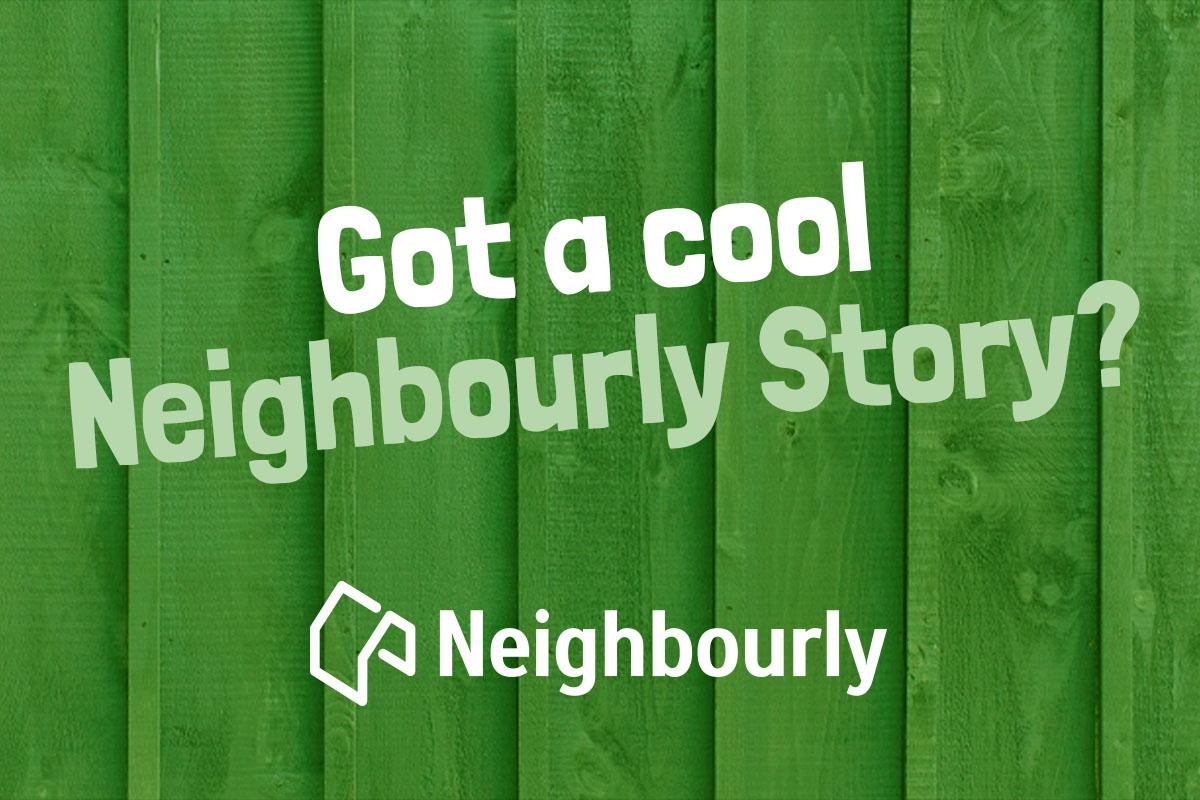
Lorna Thornber Reporter from Stuff Travel
Hi everyone,
With overseas tourists set to return to NZ shortly, we're looking at doing a light-hearted piece on the odd questions Kiwis have been asked about NZ. You may have seen the post doing the rounds on social media at the moment asking whether English is spoken here and suggesting NZ … View moreHi everyone,
With overseas tourists set to return to NZ shortly, we're looking at doing a light-hearted piece on the odd questions Kiwis have been asked about NZ. You may have seen the post doing the rounds on social media at the moment asking whether English is spoken here and suggesting NZ is a state of Australia (see below). Have you ever been asked anything surprising about NZ? Feel free to message me or comment below. Please put 'NFP' (not for publication) in your comment if you do not want it or your name included in the article. Thanks very much for your help and happy travels.

83 replies (Members only)
Transform plain serving boards into pastel-toned works of art with a few Resene testpots. Graphic prints and geometric patterns are a big trend for summer. Take your outdoor entertaining to the next level by painting an array of wooden serving boards in pretty sorbet colours from Resene. Structured… View moreTransform plain serving boards into pastel-toned works of art with a few Resene testpots. Graphic prints and geometric patterns are a big trend for summer. Take your outdoor entertaining to the next level by painting an array of wooden serving boards in pretty sorbet colours from Resene. Structured lines or a paint-brush riot – anything goes!
Find out how to create your own.
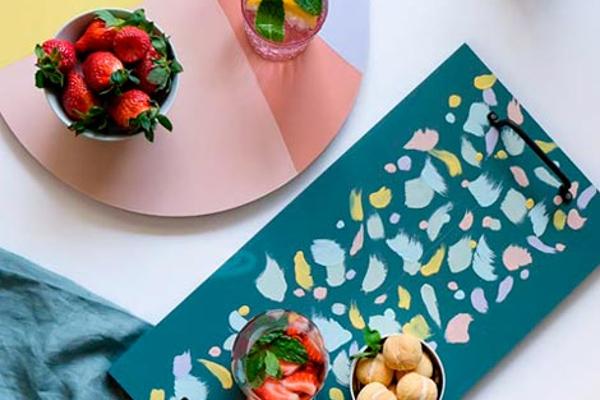
The Team from NZ Compare
Now, more than ever, a great broadband connection is vital to all Kiwis! Our lives have changed so much over the past few years with many of us now working from home.
Hyperfibre delivers insane speeds that most Kiwis can’t even imagine! Whether it’s for work, study, streaming or playing … View moreNow, more than ever, a great broadband connection is vital to all Kiwis! Our lives have changed so much over the past few years with many of us now working from home.
Hyperfibre delivers insane speeds that most Kiwis can’t even imagine! Whether it’s for work, study, streaming or playing your favourite video games, Hyperfibre is going to give you the smoothest experience possible.
Feel the need for speed? Hyperfibre has launched on Broadband Compare. Go check it out now and see if it's right for you!

More than 400 weather stations around the world exceeded their record temperatures last year!
As one of the hottest years to date, there is an urgency to adapt our homes to these extreme events! Using resilient building materials can mitigate the effect of these events!
Check out our … View moreMore than 400 weather stations around the world exceeded their record temperatures last year!
As one of the hottest years to date, there is an urgency to adapt our homes to these extreme events! Using resilient building materials can mitigate the effect of these events!
Check out our residential property report for insight into your property’s potential risks in the future!

60 replies (Members only)
Ashleigh from Neighbourly.co.nz
A state of emergency has been declared for locations on the East Coast. Check out this morning's breaking news from Stuff.co.nz.
- Severe flooding hits the Tolaga Bay and Tokomaru Bay areas of Tairāwhiti.
- Two contractors are trapped near Anaura Bay, and a rescue operation is underway.
… View moreA state of emergency has been declared for locations on the East Coast. Check out this morning's breaking news from Stuff.co.nz.
- Severe flooding hits the Tolaga Bay and Tokomaru Bay areas of Tairāwhiti.
- Two contractors are trapped near Anaura Bay, and a rescue operation is underway.
- Tairāwhiti Civil Defence has ordered the evacuation of residents in the Mangatuna area north of Gisborne.
- The Hikuwai River reached 12.8 metres after 3am, a level higher than in flooding in 2020.
- State Highway 35 from Gisborne to Ōpōtiki, is closed because of flooding, slips and washouts.
- Power is out for around 755 customers in the Tokomaru Bay area.
- There are multiple slips in Tolaga Bay Gorge, with flooding across the road making it suitable only for four-wheel drives.
- Gisborne Civil Defence manager Ben Green told RNZ the rainfall overnight was almost "biblical".
- At least seven households have been evacuated.
- Rainfall is still heavy and there is more to come across the region, potentially another 150mm today.
- Parts of Bay of Plenty could also expect more than 200mm of rain to fall today.
For further information on the evolving situation, click here.

The Team from NZ Compare
NZ Compare proudly employ a workforce of incredibly talented and devoted individuals, who make up our website and technology development team. These individuals are based through out the Ukraine.
Like the rest of the world, we have been closely monitoring the terrible events unfolding in … View moreNZ Compare proudly employ a workforce of incredibly talented and devoted individuals, who make up our website and technology development team. These individuals are based through out the Ukraine.
Like the rest of the world, we have been closely monitoring the terrible events unfolding in Ukraine and are in daily meetings with our staff to confirm their safety and well-being.
Our wonderful developers are facing a climate of unpredictability, we felt it was our responsibility to ensure you, our wonderful Neighbours were both aware and understanding that this environment may cause delays to the many projects we have in the works for 2022.
To show support of our brilliant team, we have temporarily changed our logo on our NZ Compare website. WHICH has also been recently refreshed and looking better than ever thanks to this very team! Go check it out!

Mei Leng Wong Reporter from NZ Gardener & Get Growing
Dear neighbours,
Every month, NZ Gardener runs a series of tested reader recipes using a seasonal crop. We are now on the hunt for walnut recipes, so send your best ones to mailbox@nzgardener.co.nz before March 28, 2022.
Every published recipe wins a copy of our special edition Homegrown Recipes.

Robert Anderson from Curtain Clean at Whakatane ChemDry
More reasons why you should always have a bottle of vinegar on hand.
There are so many different vinegar uses that it is truly one of the most versatile items in your pantry. From cooking to cleaning to personal care, there are endless home uses for vinegar. In fact, there are very few things … View moreMore reasons why you should always have a bottle of vinegar on hand.
There are so many different vinegar uses that it is truly one of the most versatile items in your pantry. From cooking to cleaning to personal care, there are endless home uses for vinegar. In fact, there are very few things you can’t clean with vinegar.
It’s important to note that there are many different types of vinegar and each has its own purpose. Balsamic and red wine vinegar are used mostly for cooking and salad dressing. White vinegar, while edible, is best used for cleaning purposes. Cleaning vinegar is dangerous to ingest and should only be used for that purpose. Apple cider vinegar is one of the most versatile types of vinegar, with just as many culinary uses as cleaning and other purposes.
Here are some genius vinegar uses you might not know about.
Vinegar as All-Purpose Cleaning Spray: Get rid of your chemical cleaning products and use vinegar instead. Mix one-part white vinegar and one part water in an empty spray bottle to clean everything from wood floors to countertops. To make the smell more pleasant, add 10-20 drops of any essential oil. Lemon is a particularly good choice because it helps to cut grease and odours.
Vinegar as Soap Scum Remover: Having trouble scrubbing that tough soap scum off your bathtub or shower doors? Pour some white vinegar or cleaning vinegar on a sponge and wipe. If you still have trouble removing the grime, put a little baking soda on a sponge and add a little more vinegar. It will fizz, making the dirt come up easily.
Vinegar as Clarifying Hair Treatment: If product build-up is making your hair feel oily, skip the clarifying shampoo and DIY your own using, you guessed it, vinegar. Combine one part apple cider vinegar to two parts water in an old shampoo or empty water bottle and shake it up. After shampooing your hair, towel dry and apply the solution evenly from roots to ends. Let it sit for a few minutes before rinsing and conditioning.
Vinegar as Candle Wax Remover: Spilled candle wax is easy to remove with the help of vinegar. Just heat up the wax with a hair dryer and then sop it up with a paper towel. Remove any leftover wax with a paper towel soaked in a solution of half water and half vinegar.
Vinegar as Weed Killer: Stop using chemical weed killers in your garden. Vinegar is better for your family and pets. It’s best to use vinegar that has high acidity, such as Pure 20% Vinegar ($23; amazon.com), to apply to weeded areas. You can also combine a gallon of white vinegar with a cup of salt and a tablespoon of dish soap. Mix well and apply to the area.
Vinegar as Flea Spray for Your Pet: Want to treat Fido or Fluffy’s fleas naturally? After shampooing, apply a mixture using one part water to one part apple cider vinegar on your pet’s coat to create an unpleasant environment for fleas to live.
Vinegar as Carpet Stain Remover: Vinegar can help lift odours and get stains out of carpet. Soak the stain with white vinegar, and then sprinkle on some baking soda until the solution fizzes. Wait a few minutes for the stain to absorb and then vacuum up the powder. If the odour is bothersome, apply a drop or two of essential oil over the vinegar.
Vinegar as Stainless Steel Cleaner: No need to buy anything special to make your fridge shine. Spray undiluted white vinegar on stainless steel or chrome, then buff off with a polishing cloth.
Vinegar as Showerhead Cleaner: If your shower spray isn’t what it used to be, it could be clogged with minerals and gunk. Fill a plastic bag with vinegar and secure it over the showerhead using tape or rubber bands. Wait at least two hours and then run the water for a few minutes through the showerhead before using. You can also remove the showerhead and submerge it in the vinegar instead. Rinse off before reattaching.
Vinegar as Sweater Fluffer: Fluff up wool sweaters by adding a few capfuls of vinegar to the rinse cycle.
Vinegar as Garbage Disposal Deodorizer: To deodorize a garbage disposal, make vinegar ice cubes and feed them down the disposal. After grinding, run cold water through the drain.
More: www.curtainclean.co.nz...
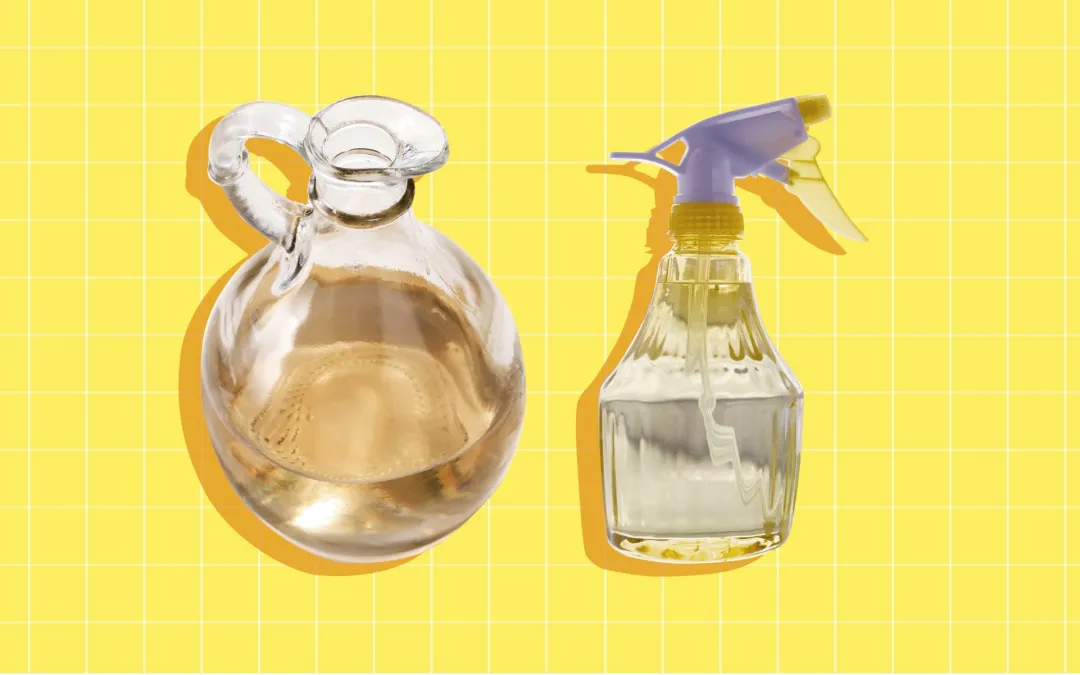
Since 1999, our residents and team members have raised more than $5 million for charities across New Zealand and Australia.
Supporting fellow pioneers isn’t new. It’s in our DNA. Learn more about becoming our charity partner for 2022/23.
Apply now.
Find out more

Refresh and restore a beautiful old rocking chair with a simple but stylish new look with Resene Enamacryl.
Find out how to create your own.
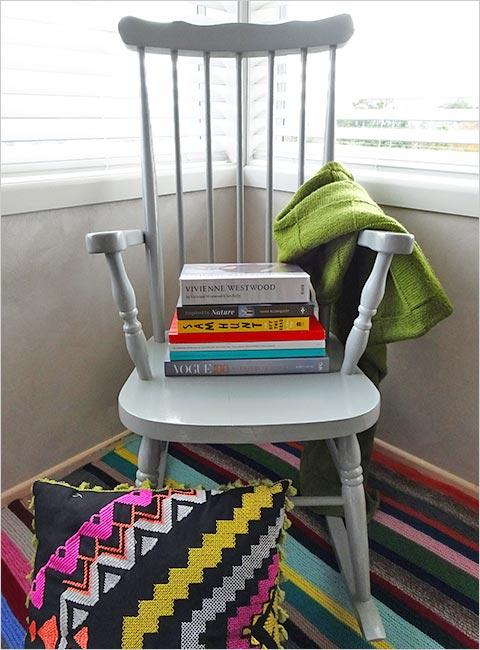
The Team from NZ Compare
Today is a perfect time to stop and enjoy the company of your neighbours, friends and family!
The team at NZ Compare wish you all good health, good luck and happiness for 2022.

Get 20% off Resene premium products at Resene ColorShops and participating resellers:
- Paints
- Wood stains
- Primers
- Sealers
- Decorating accessories
- Wallpaper
… View moreGet 20% off Resene premium products at Resene ColorShops and participating resellers:
- Paints
- Wood stains
- Primers
- Sealers
- Decorating accessories
- Wallpaper
- Cleaning products
Discounts off the normal retail price of Resene premium paints, wood stains, primers, sealers, decorating accessories, wallpaper and cleaning products until 26 April 2022. Available only at Resene owned ColorShops and participating resellers or shop online. For details see 20% off sale.
Shop online
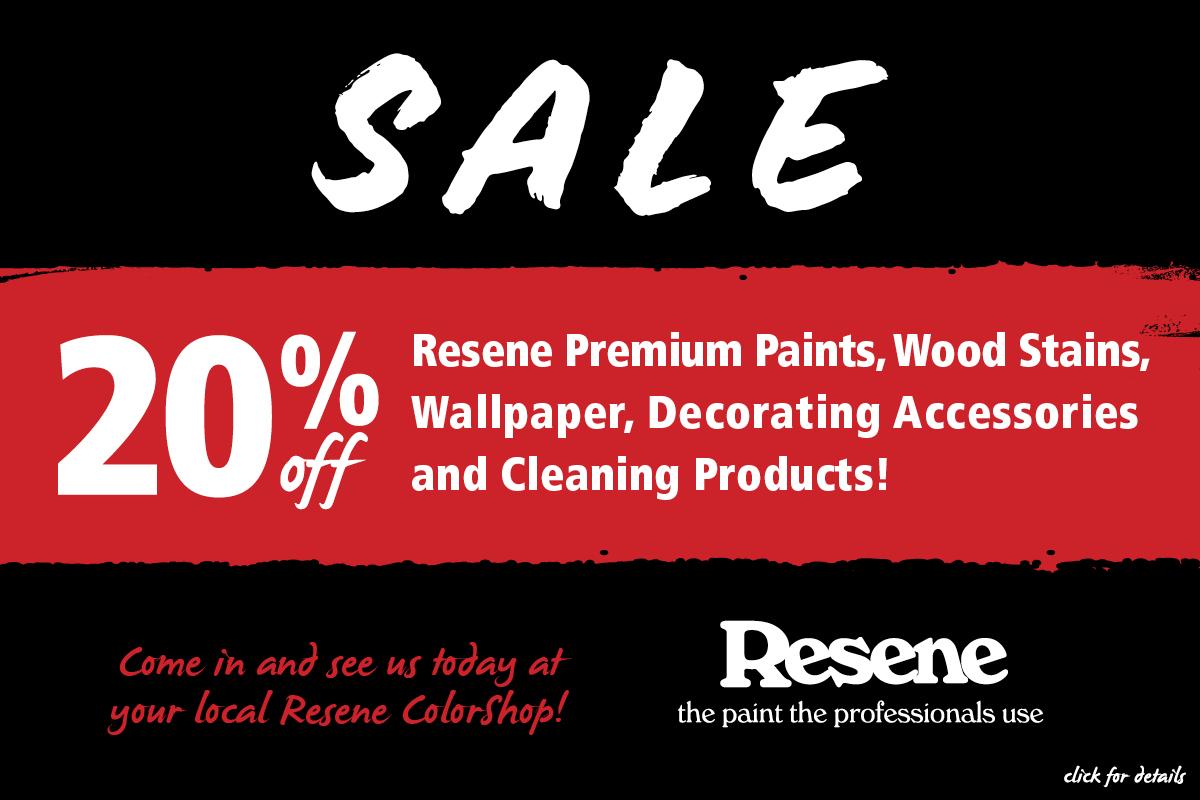
 Loading…
Loading…
Are you sure? Deleting this message permanently removes it from the Neighbourly website.
 Loading…
Loading…
© Neighbourly 2025
